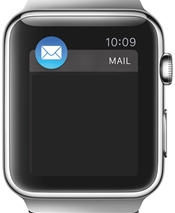— September 23, 2017
The other day, when I was browsing my Facebook, I noticed a post from a business that contained a frankly ridiculous number of hashtags. The post looked silly, unprofessional and the company in question seemed to be using hashtags because, you know, it’s social media and you use #hashtags! Now I’m not saying that they don’t have their uses, but it seems they have become so synonymous with social media that people have started to use them but don’t appear to know why. In this blog I’m going to attempt to guide you through the three Ws of hashtags: Why, Where and When.
Why?
At their core, hashtags are essentially a way of indexing or grouping together posts on the same topic. And nowadays, almost all social networks have incorporated hashtags into their functionality in one way or another: generally speaking, hashtags always become links when you post them, allowing users to click on them and see other posts surrounding that particular topic. They’re a way of reaching people outside of your own following, but within a particular subset of people you’re trying to target. And clearly, if you manage to get your content in front of the right people then your engagement rates should rise, which then leads to more followers and eventually more traffic to your site. But clearly, this approach only works on certain platforms.

Where?
Hashtags are logical and work well on Twitter, where they originated from. It is arguably the most social of all the social media platforms, meaning users on there regularly interact with people outside of their networks – often via hashtags surrounding certain topics. Adding hashtags to your tweets allows you to easily connect with people outside of your following, easily granting you a larger audience for your tweets. The key characteristic that Twitter shares with Instagram, Pinterest and to a certain extent LinkedIn, is that people are likely to be searching these platforms via hashtags. So if you were to add #SocialMediaJob to a post on these sites, there’s a fair chance it’ll reach people searching for those keywords. It’s like a mini version of Google, really. However, there’s an elephant in the room when it comes to hashtags.

Facebook offers similar functionality in that you can click on hashtags to see similar posts on the topic, but in actual fact they are a largely pointless feature. Unlike other major social media channels, it’s common for a user’s personal posts to only be visible to their network given that’s the default setting. So in actual fact, clicking on the hashtag of a Facebook post isn’t showing you anything close to all of the posts on that subject, as the majority will be hidden away in people’s private networks. And unlike Twitter, Facebook does not have a trending section of hashtags, which by using these hashtags is one of the best ways to increase the visibility of your tweets.
When?
For most networks, there is a logical answer to the question of when to use hashtags. On Twitter you can use them to tap into new audiences outside of your own following, potentially using the feature to target the millions of users reading tweets on a trending hashtag.
On LinkedIn, job searchers could use the function to search for vacancies posted by personal profiles. You might be looking for some cooking inspiration on Pinterest, leading you to search hashtags such as ‘summer cooking ideas’ or ‘barbecue ideas’. And on Instagram you may well want to view photos and videos taken at that Radiohead concert you’re missing by searching the #Radiohead hashtag.

But on Facebook, with all of these bases already covered I’m unsure just when you would decide to a) use a hashtag with your post and b) when you would want to read all of the posts around a certain hashtag. Since a huge percentage of posts are hidden away anyway then you’re only seeing a tiny proportion of total posts on the subject. It probably explains why hashtags haven’t been shown to boost engagement on Facebook.
Summary
I’m not saying it’s a disaster if you use hashtags on Facebook. The point of this post is to hopefully guide you through their core function so that you know the best time to utilise them on any given platform. Stuffing posts with hashtags on Facebook often comes across as unprofessional to me, and given their limited value you’re pretty much wasting your time including them anyway.
On the other hand, most of the other major social networks have a clear & defined use for hashtag with logical reasons for why people would be searching for them. So if you take one thing away from this blog, how about this thought: next time you think about including a hashtag in your social media post, try to consider a scenario whereby people would be actively searching for that hashtag. If you can’t, then it’s probably not worth including.
Digital & Social Articles on Business 2 Community
(72)
Report Post






